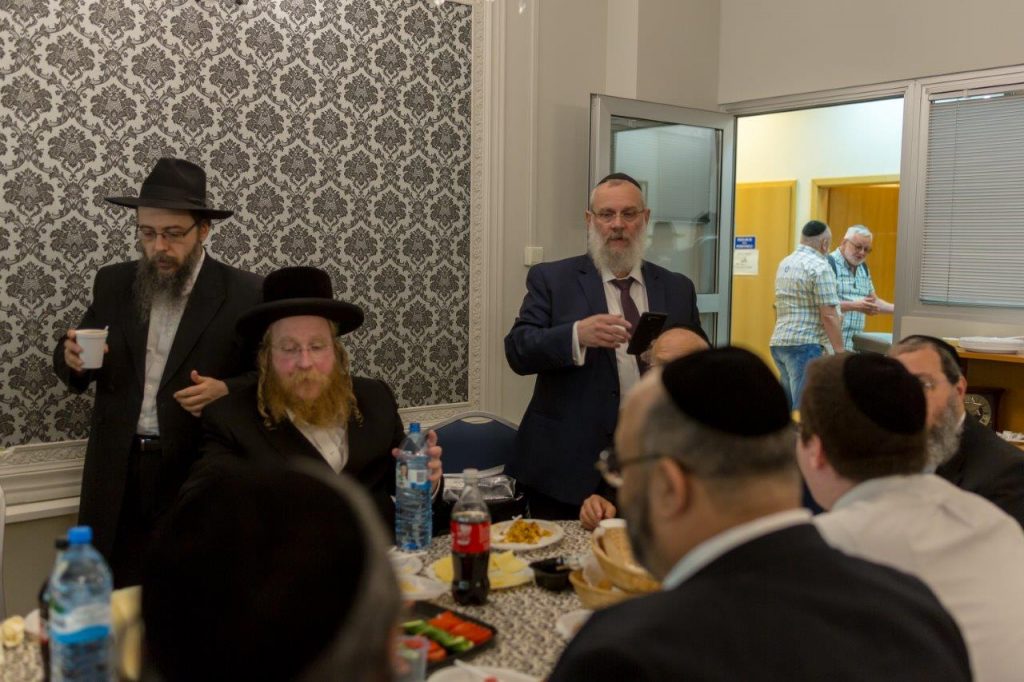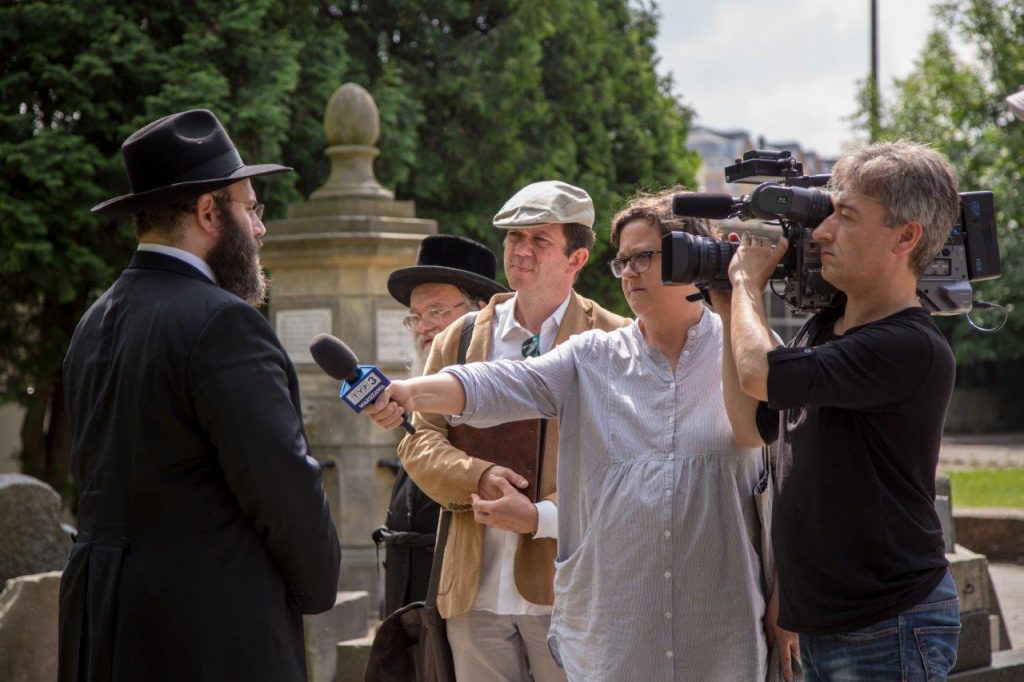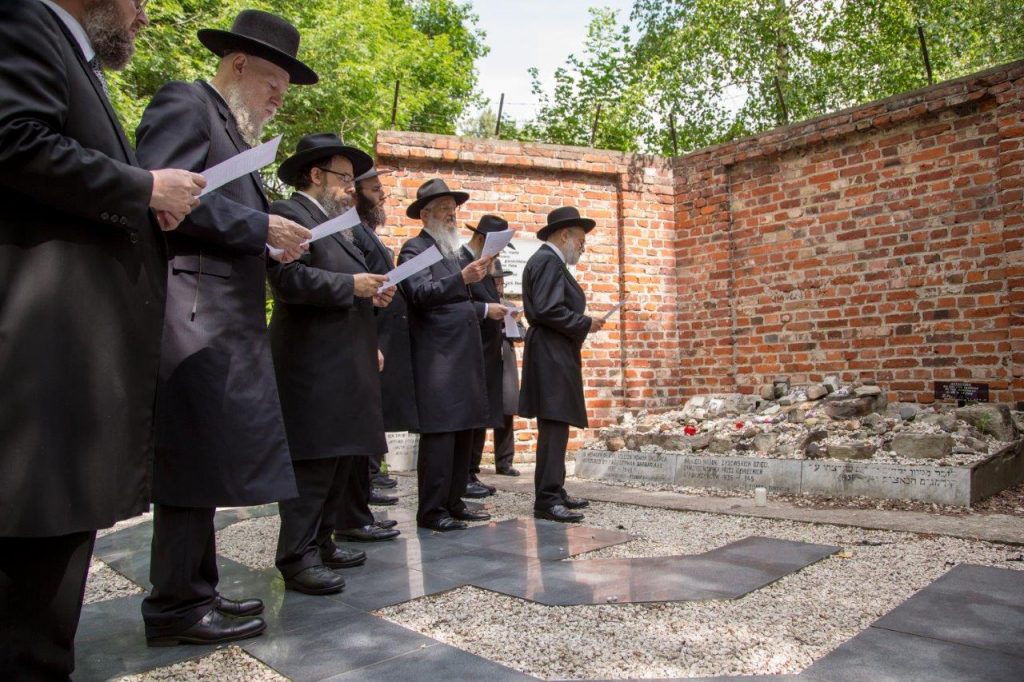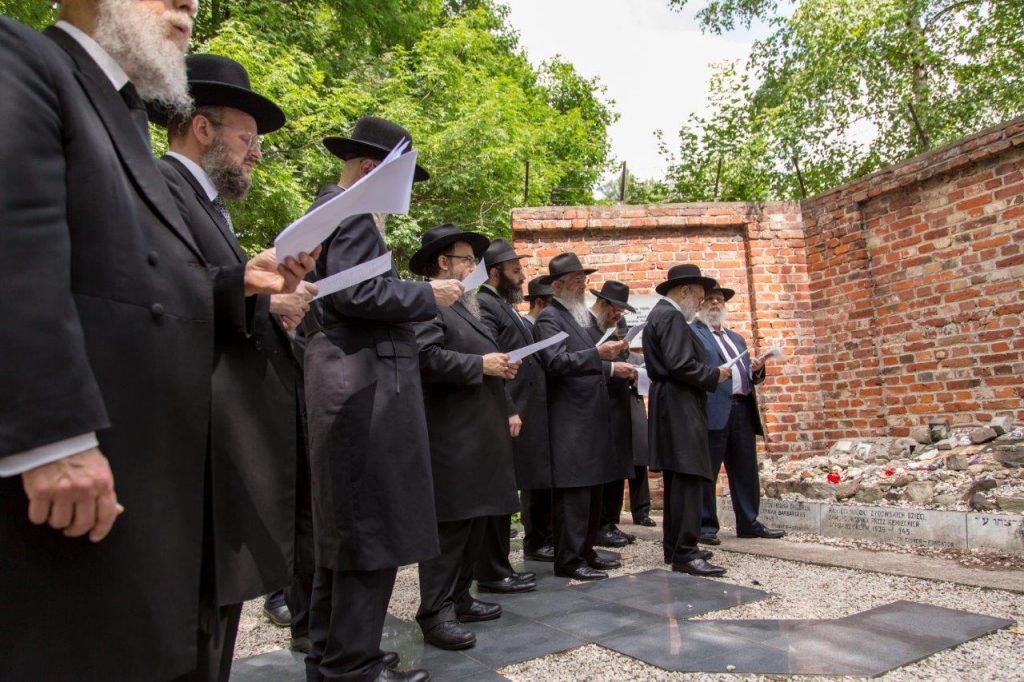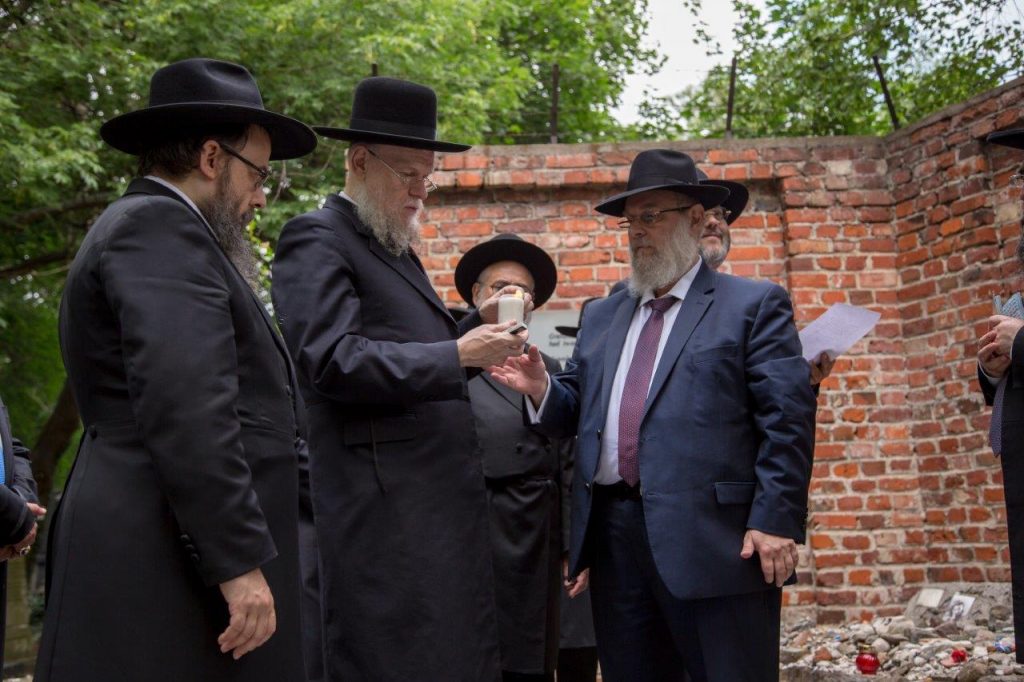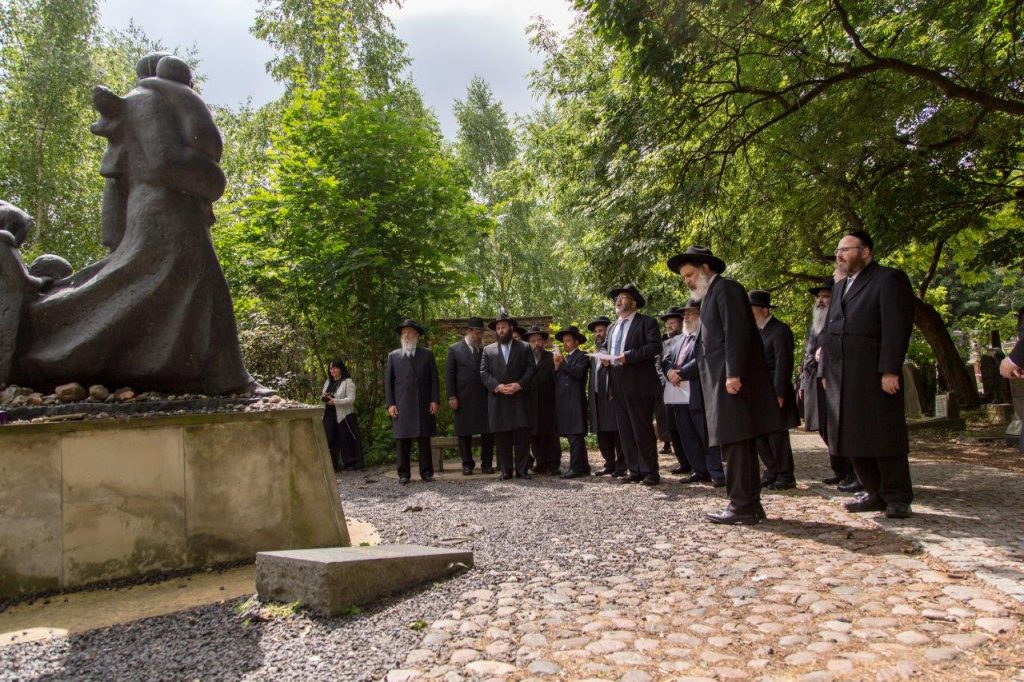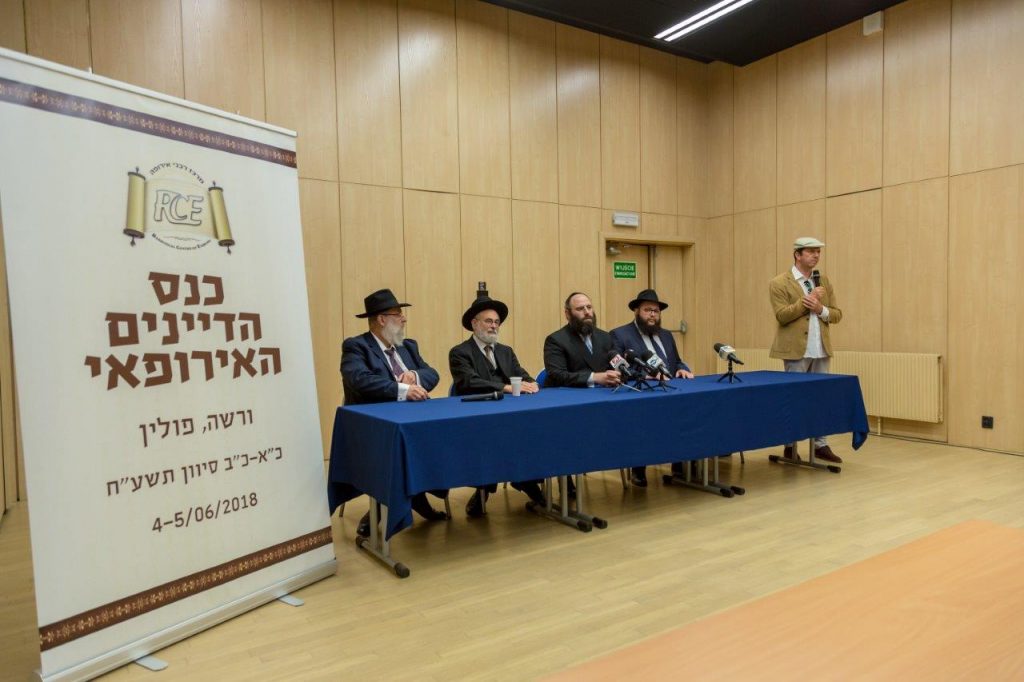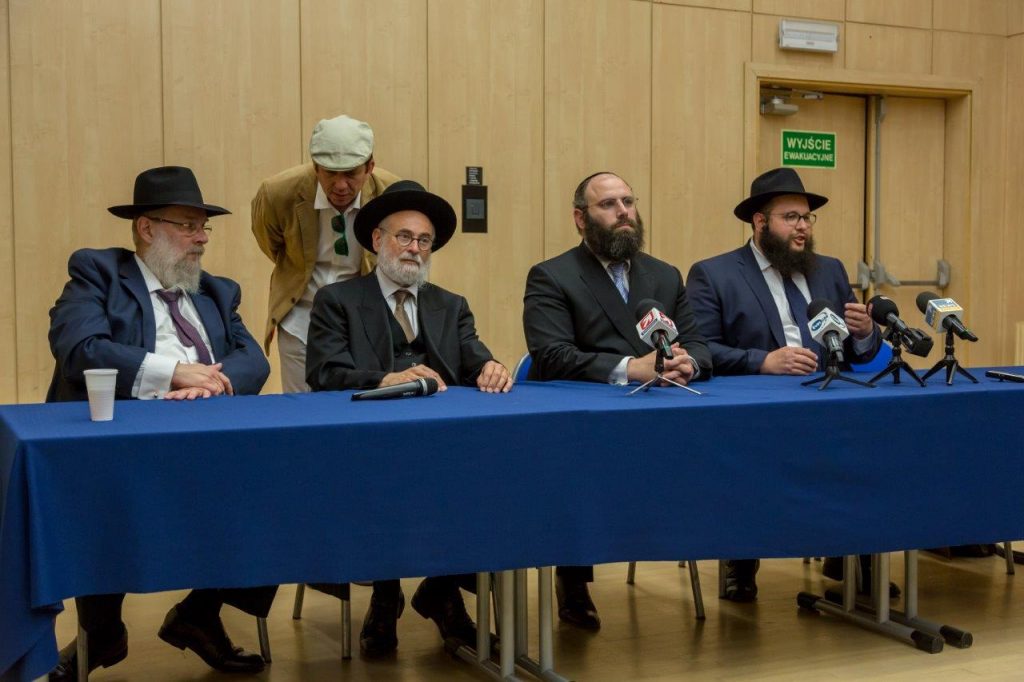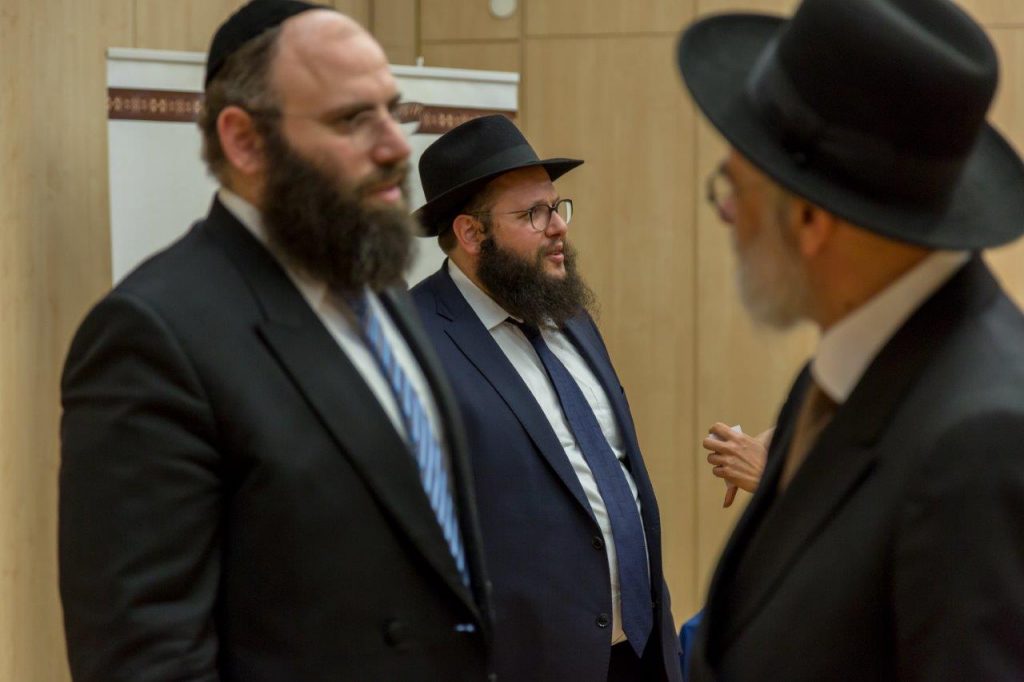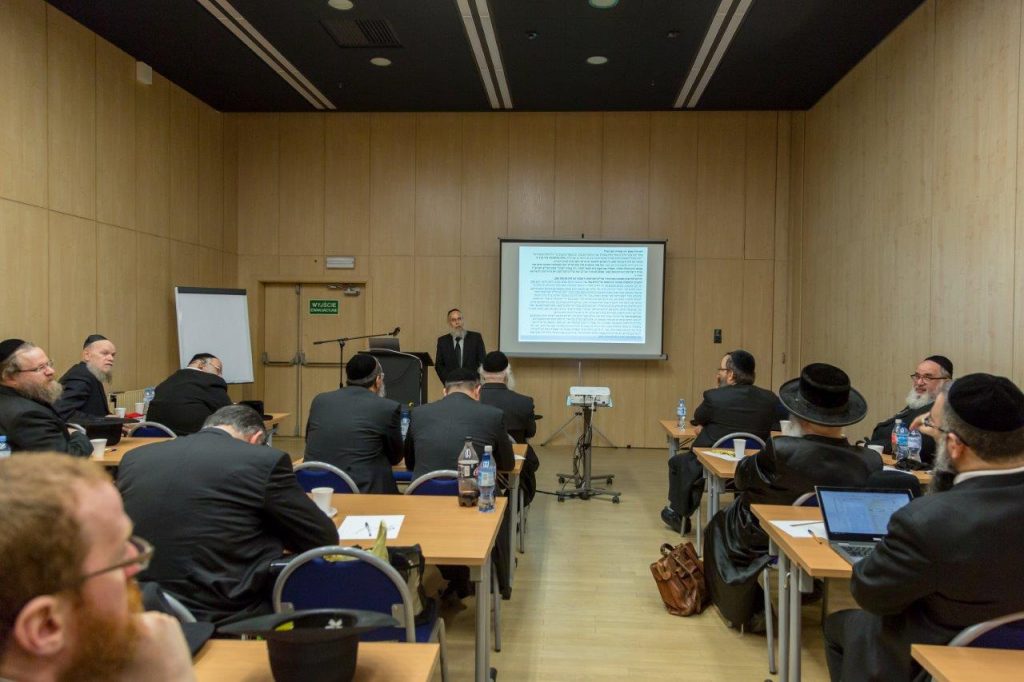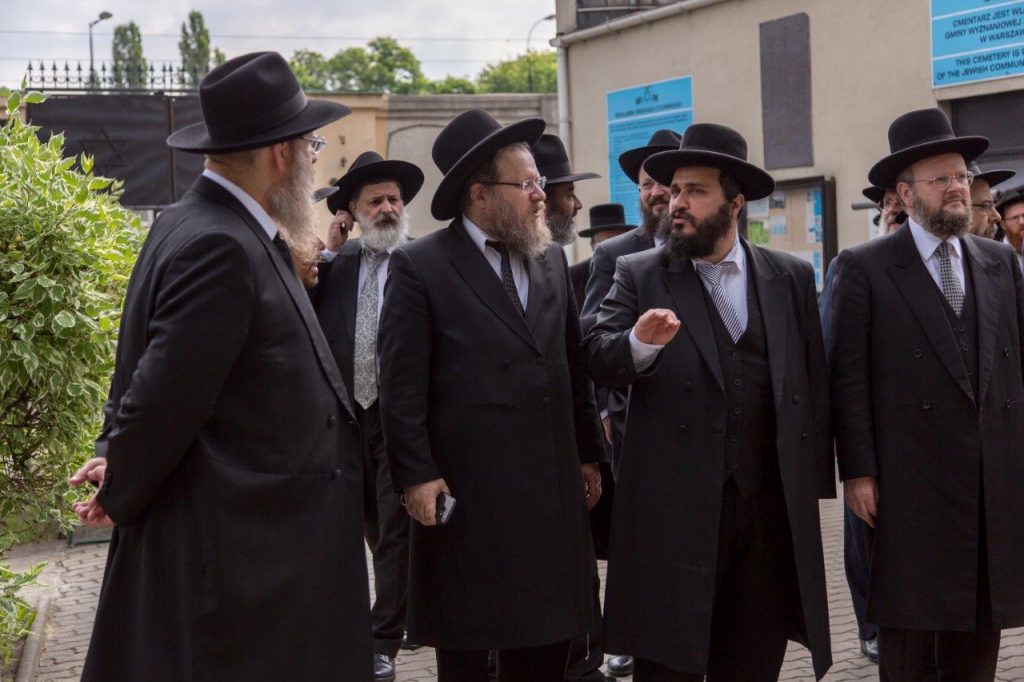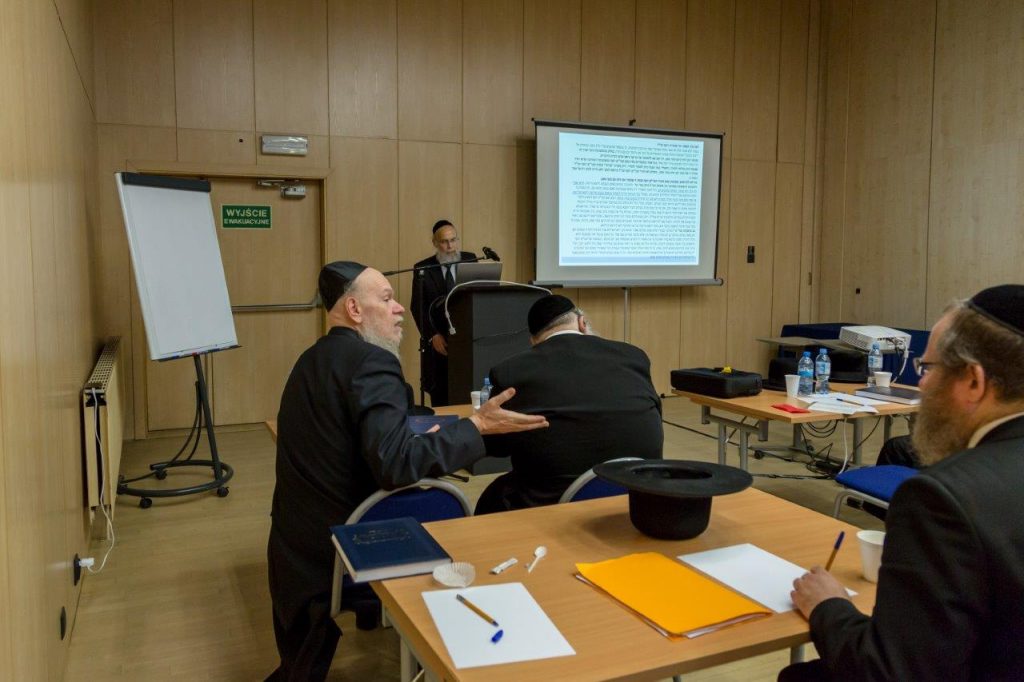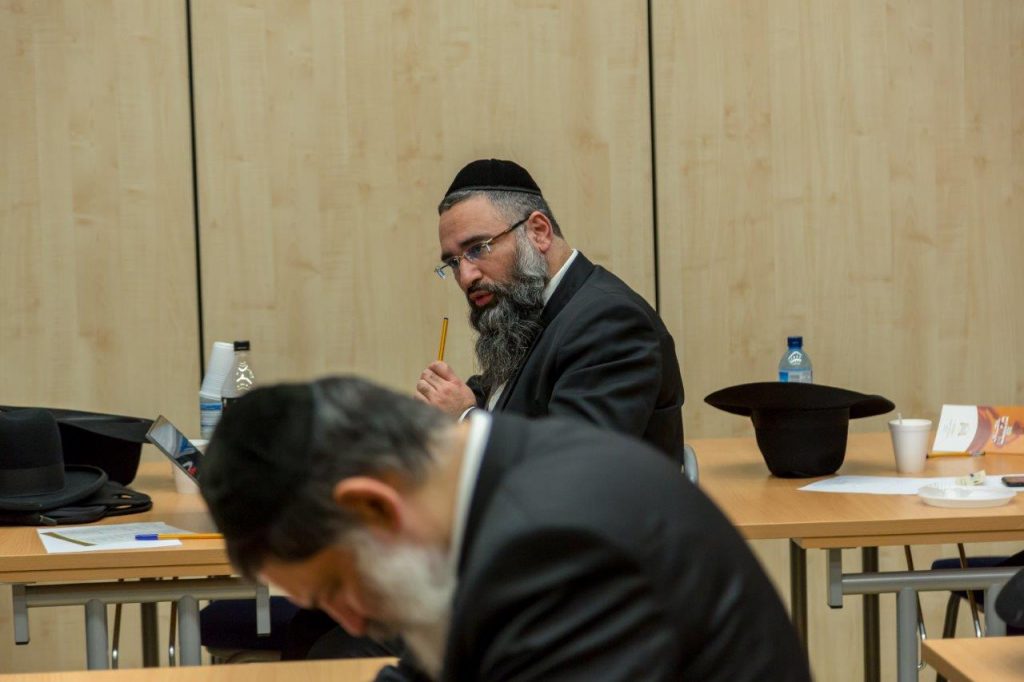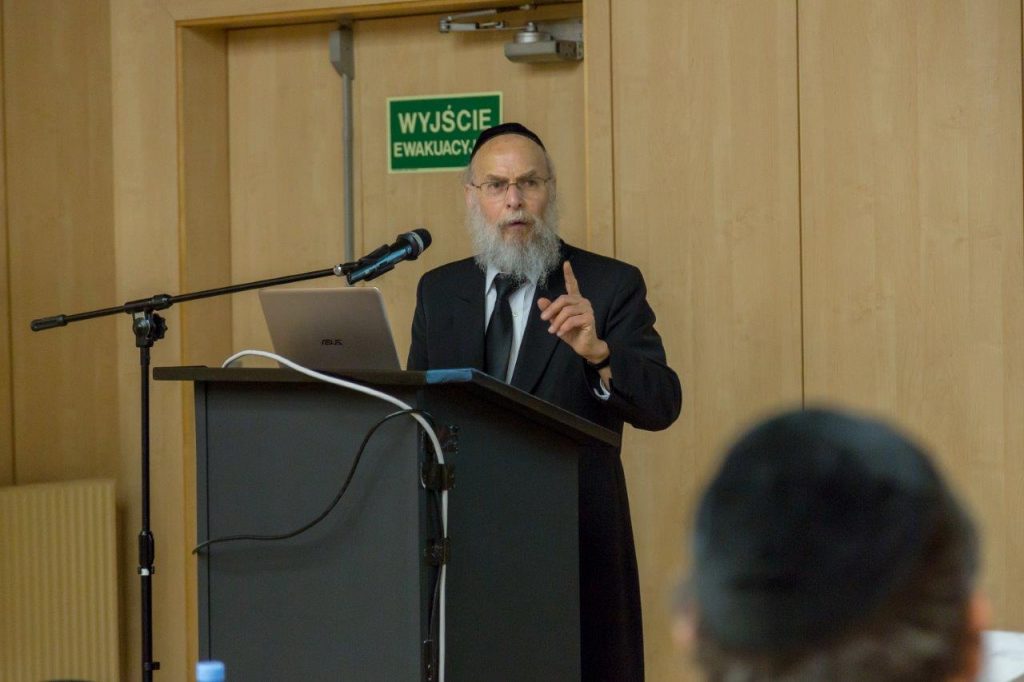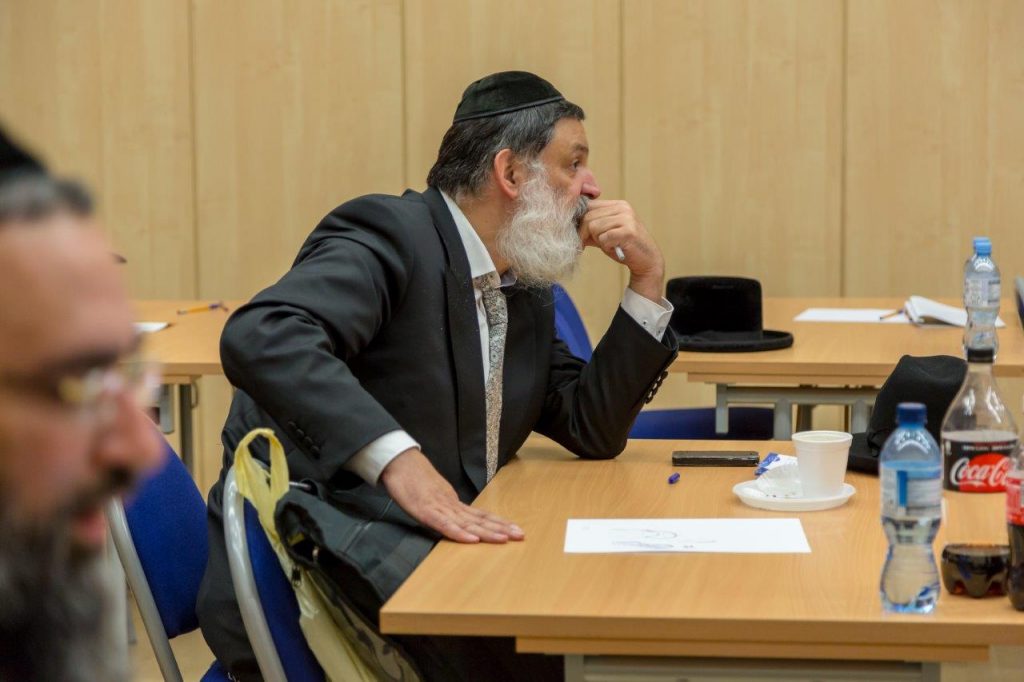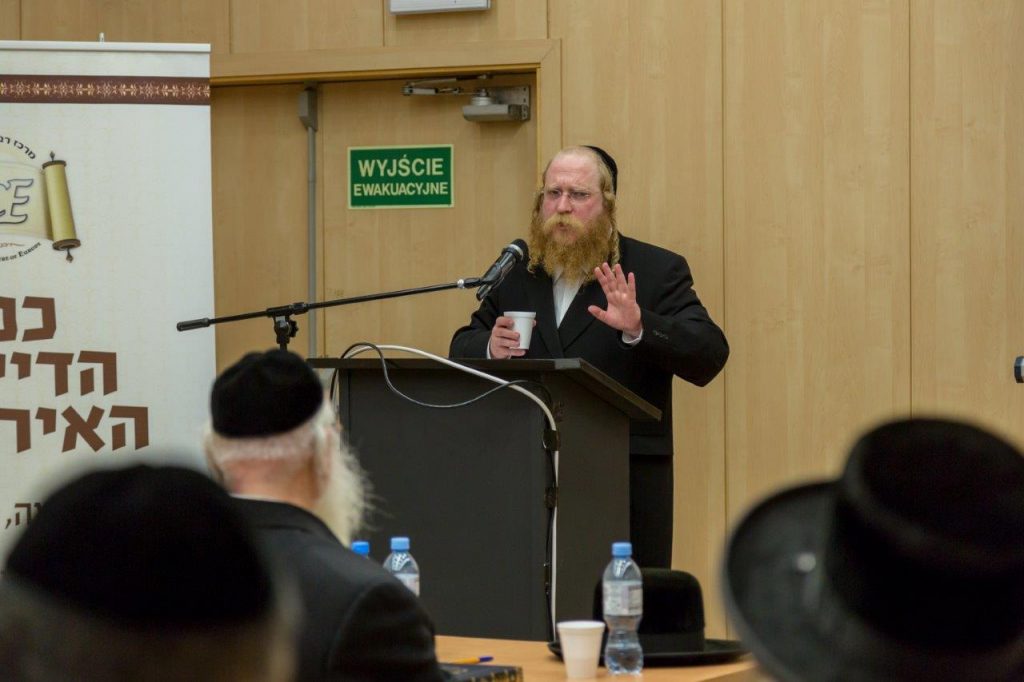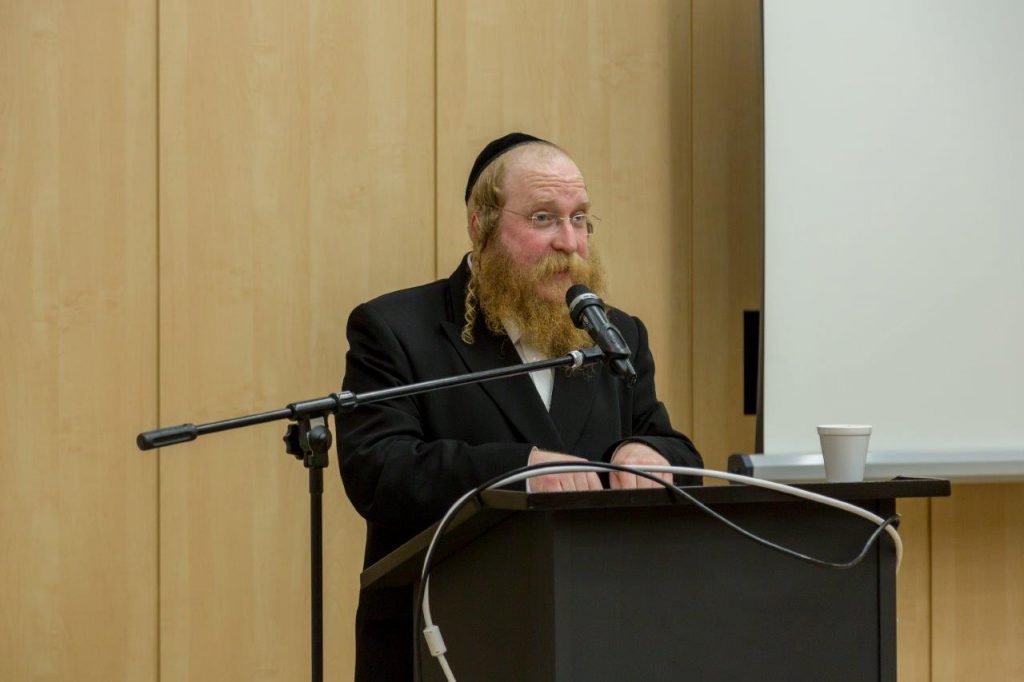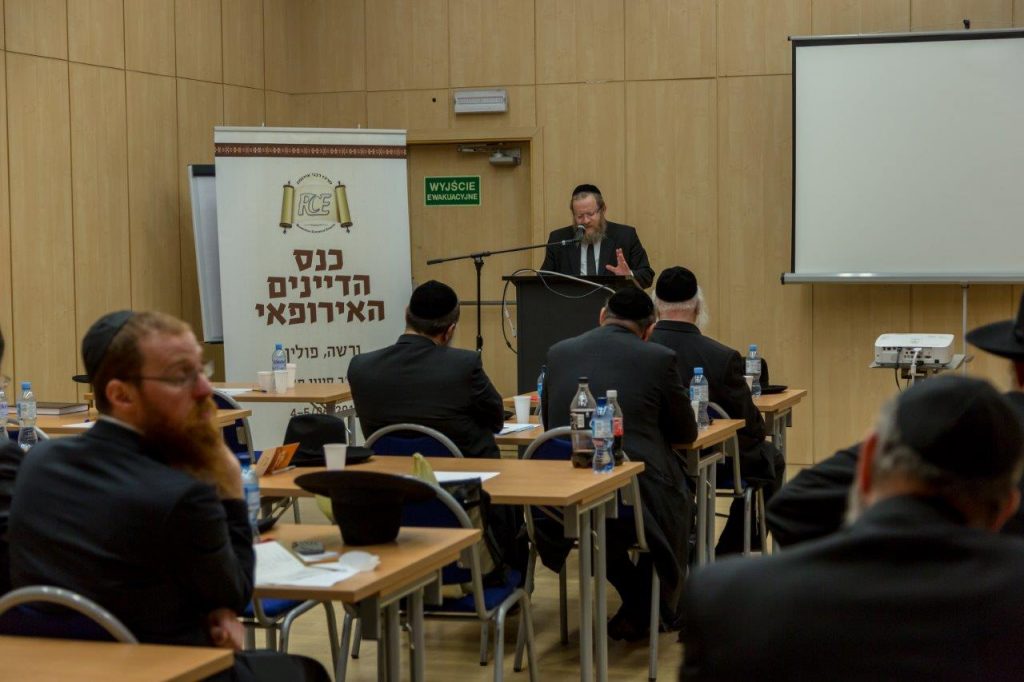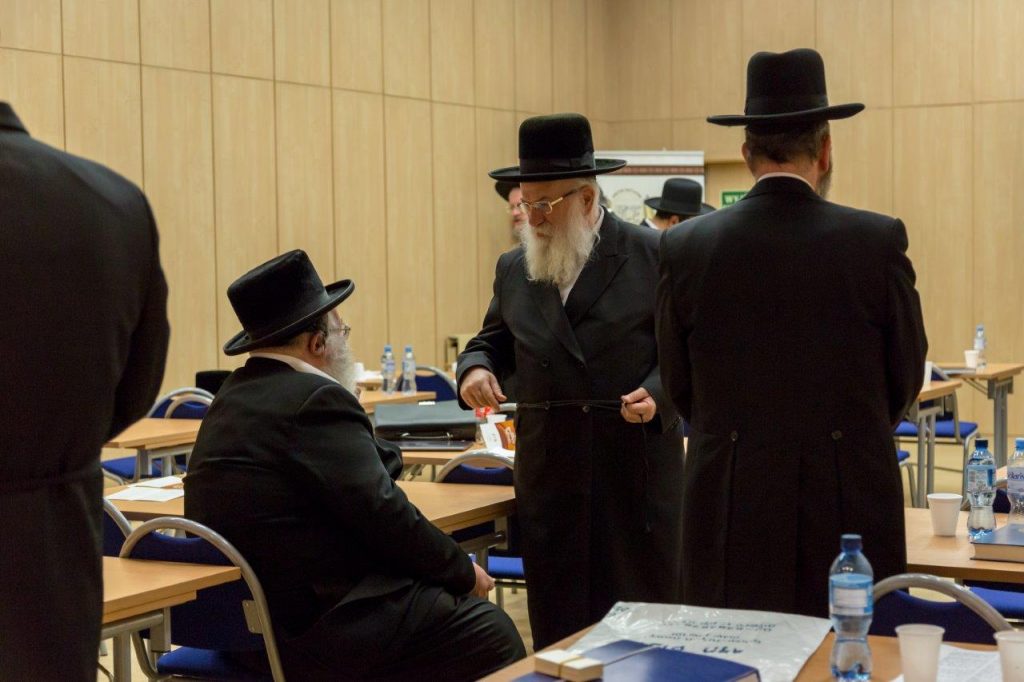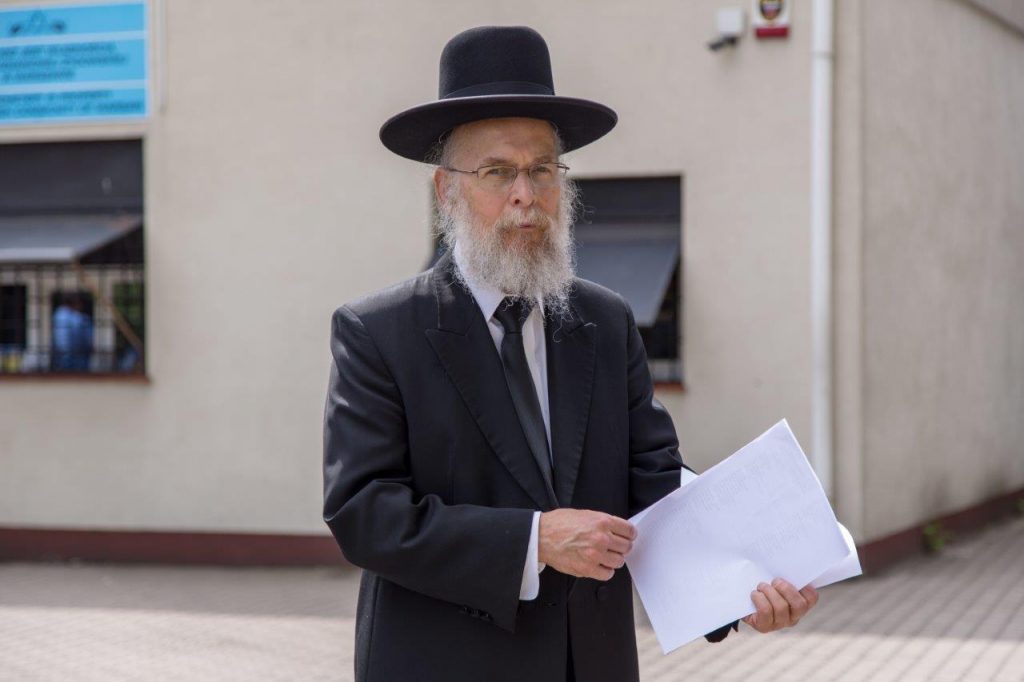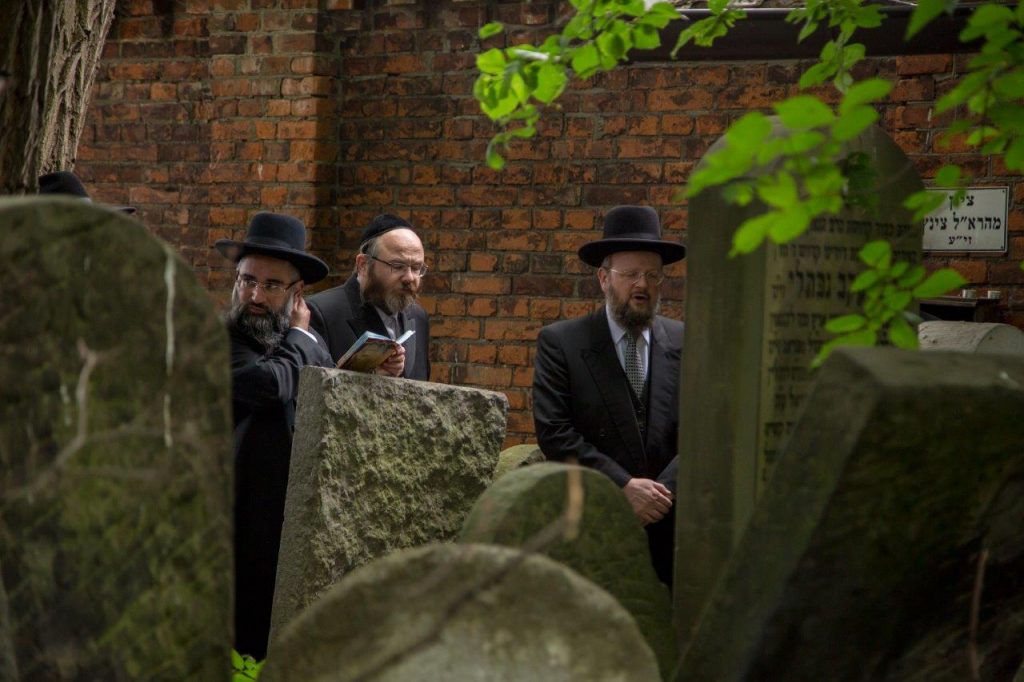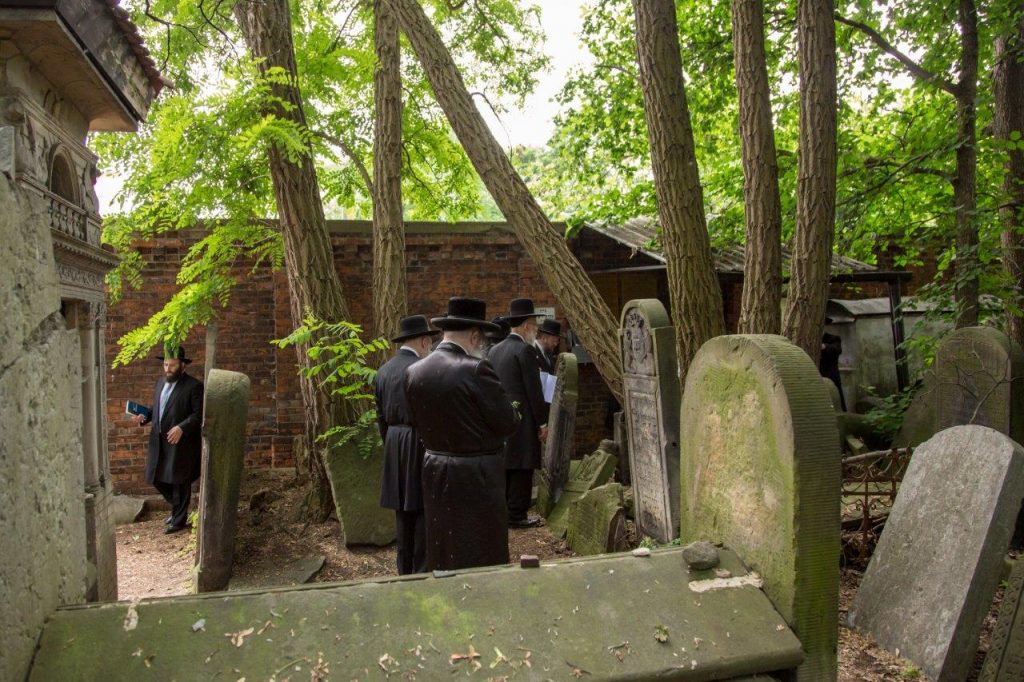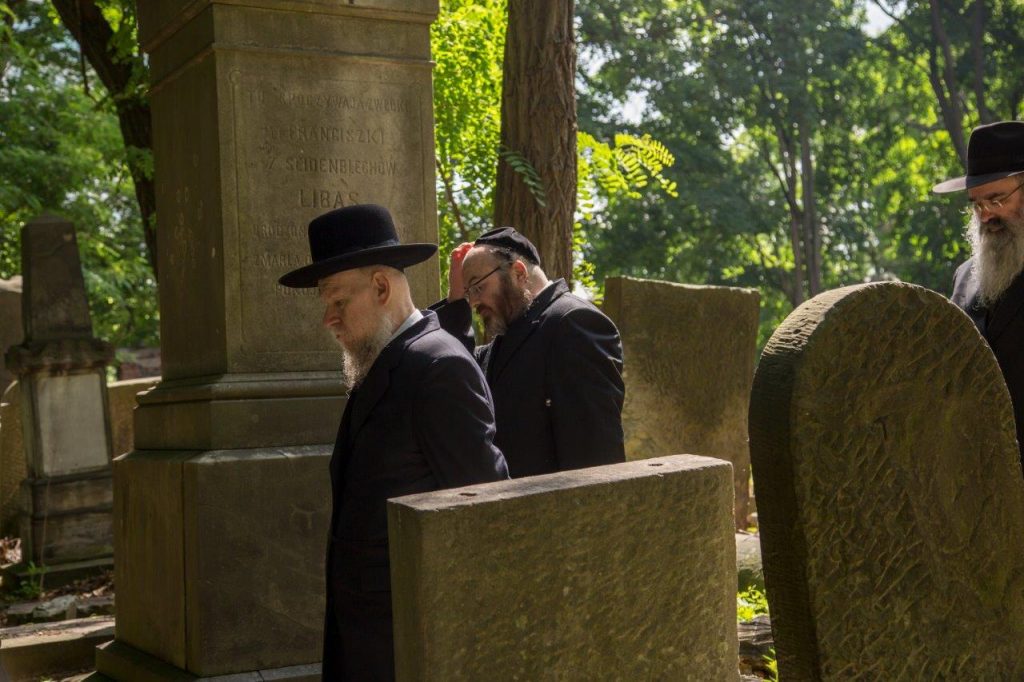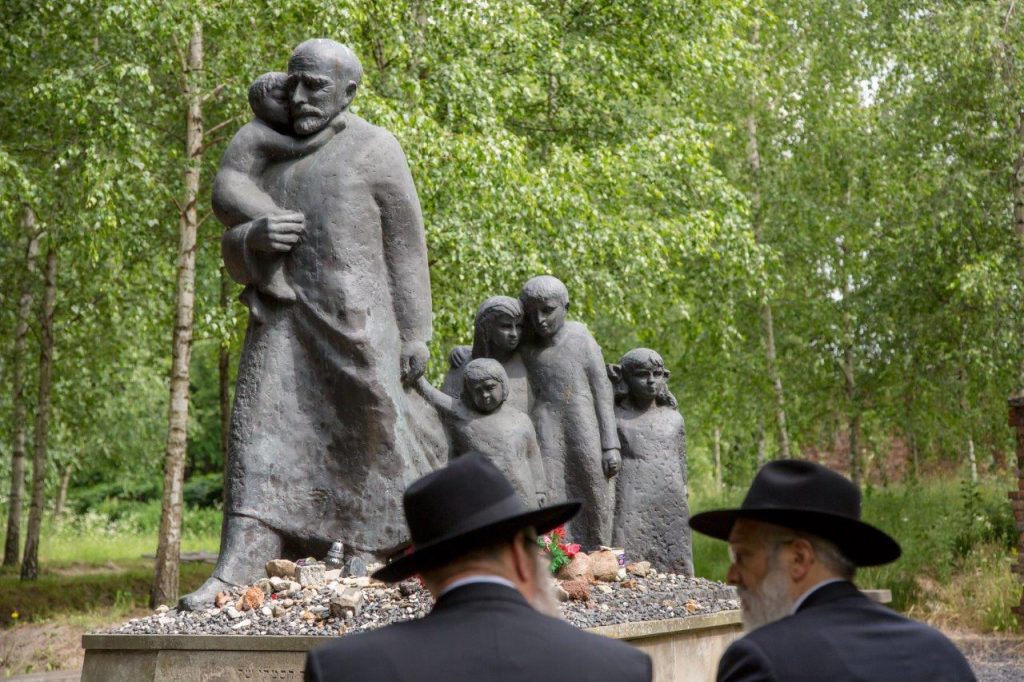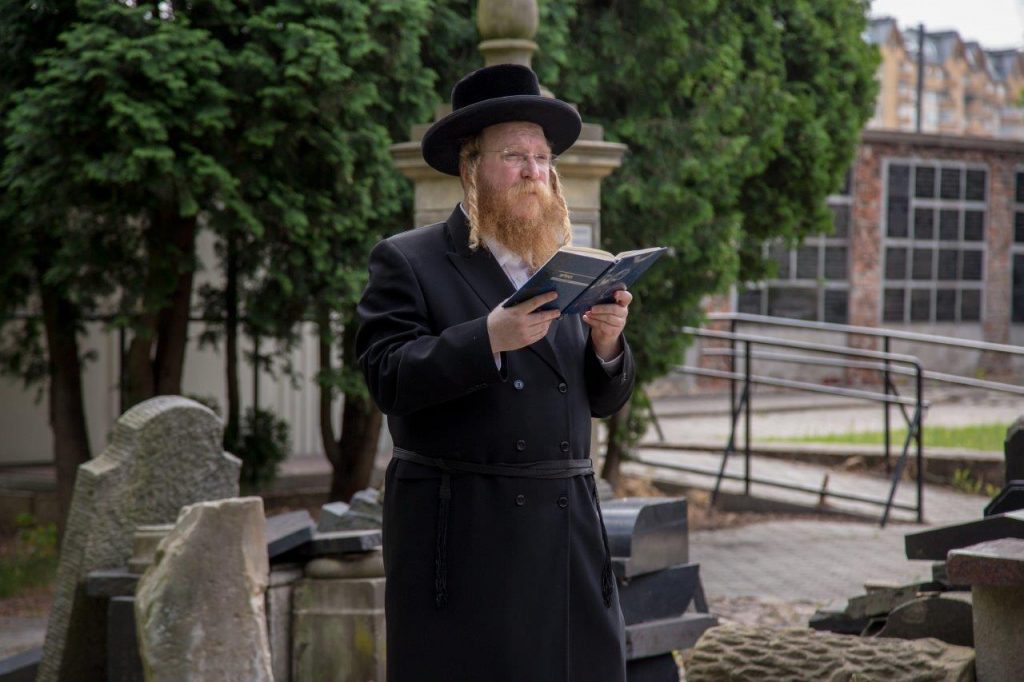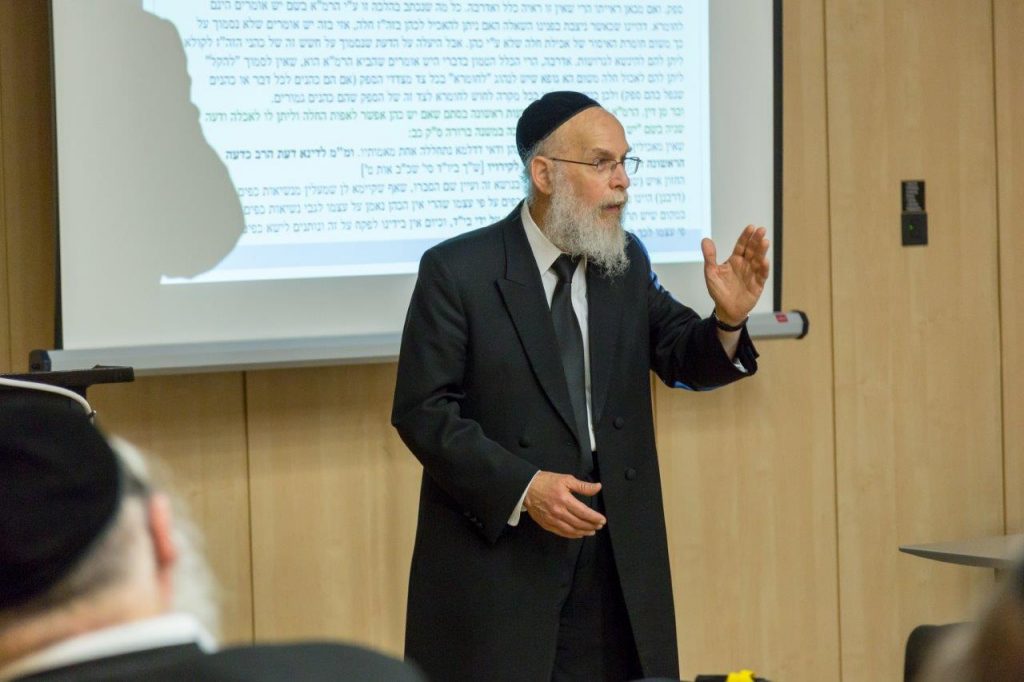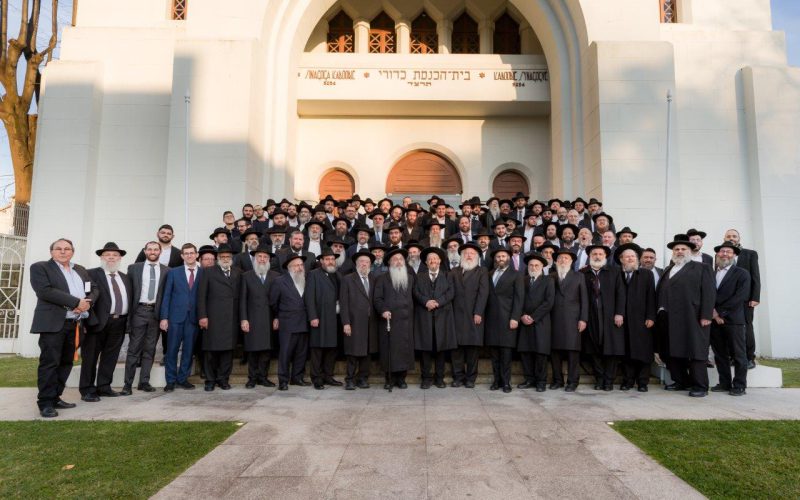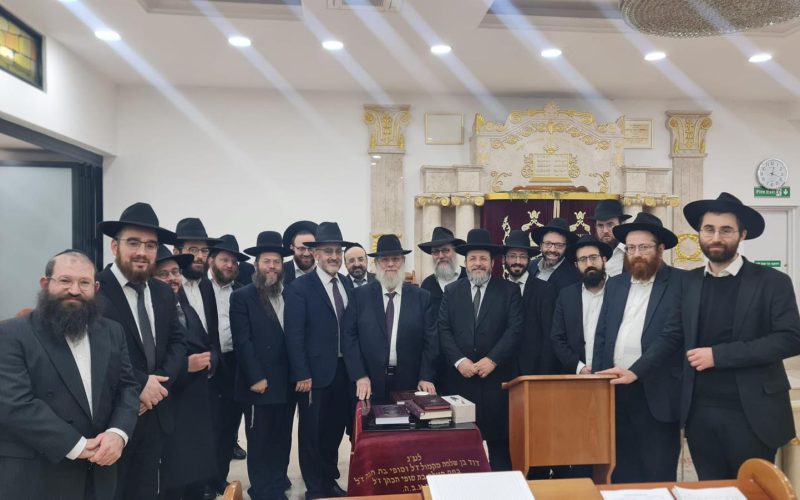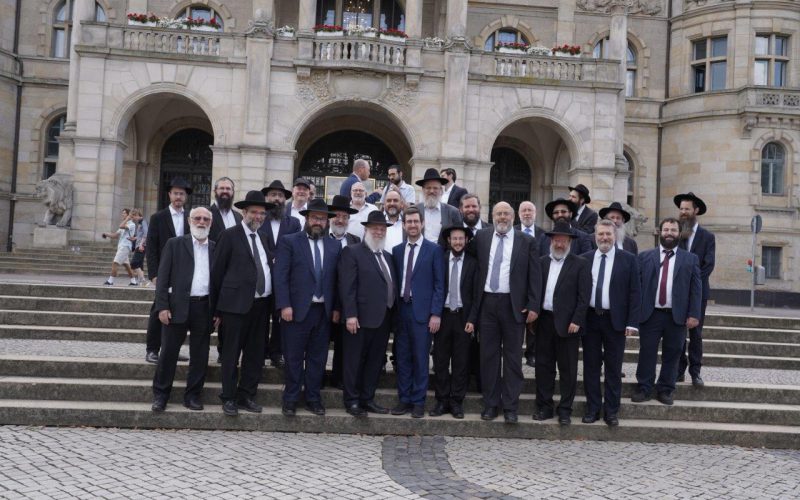Conference of Dayanim in Warsaw
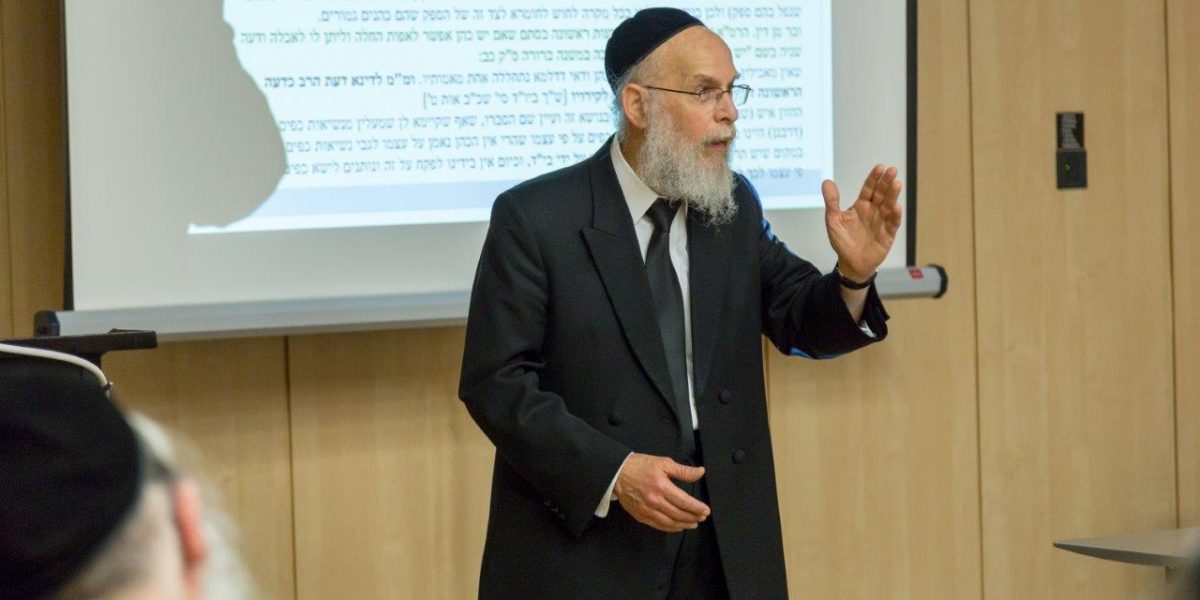
“The Torah tells us no less than forty-eight times to treat converts with compassion. Thus, it is certainly appropriate that the Jewish communities in Europe and elsewhere make sure that their converts are welcomed and accepted.” This was one of the central decisions made during the RCE’s conference of dayanim that took place recently in Warsaw. The conference was arranged with the assistance of Meromim Foundation and its director, Rabbi Ben Tzion Lipsker.
The rabbanim also visited Warsaw’s Chabad house, which is directed by Rabbi Shalom Ber Stembler, who assisted in organizing the two-day conference in which dozens of dayanim from all European countries participated. They likewise expressed their serious concerns about the recommendations of Prime Minister Netanyahu’s committee to formulate a plan for government conversions.
A call was issued to the government of Israel “to reject the recommendations of the committee, headed by former minister Moshe Nissim, and not to bring them up for discussion at all, as they undermine the very foundations of our religion and would weaken genuine Judaism as it has been conveyed from generation to generation.” This was announced at the conference by Rabbi Eliyahu Refael Hirshik, a member of Yerushalayim’s High Rabbinical Court, and representative of Chief Rabbi Yitzchak Yosef, the Rishon Letzion. His position was supported by dozens of dayanim who are recognized authorities throughout Europe.
Rabbi Menachem Margolin, director of the RCE, noted that “the fact that this conference took place in Poland specifically at this time sends a clear message that the spiritual leaders of European Jewry will do everything in their power to continue strengthening the European Jewish community.
RCE deputy director Rabbi Aryeh Goldberg emphasized the ongoing cooperation between the European rabbinical courts and the Israeli rabbinical courts in the battle to preserve and protect the boundaries of halachah.
Over the course of the convention, the rabbanim sharply criticized the attempts of Israel’s judiciary to intervene in issues that are governed by halachah. Several European dayanim pointed out that European judges avoid getting involved in such issues, deferring to the rabbis and rabbinical courts. Rabbi Yisrael Yaakov Lichtenstein, Av Beis Din of London’s Federation of Synagogues and member of the RCE’s presidium, related that it has happened more than once that when two Jewish parties applied for litigation in the secular courts, the judges recommended that they bring their case before a rabbinical court.
At the convention’s closing, it was decided that the RCE would establish a special roster of dayanim and rabbanim who function under the authority of its presidium, of which all of Europe’s approved dayanim and rabbanim would be members. In this way, anyone who seeks litigation can turn to a rabbinical court and not bring their cases to non-Jewish courts.
In addition to their meetings during the conference, the rabbanim visited the local cemetery, where great Polish rabbanim are interred. They davened near their graves and held a memorial service and lit a candle for the souls of the hundreds of thousands of Poland’s Jews who were murdered during the Holocaust.
The conference was well-covered by the local media, and the reporters asked the directors of the RCE for their opinions on many issues.
